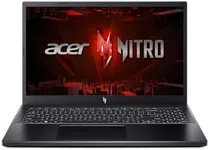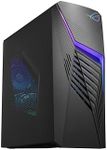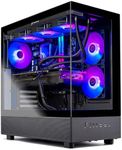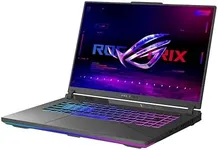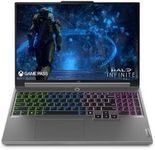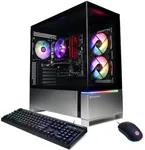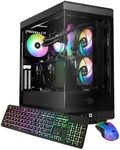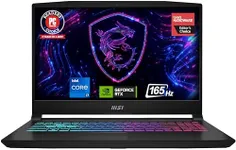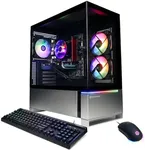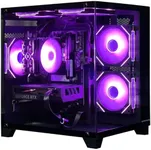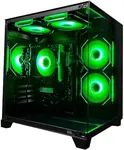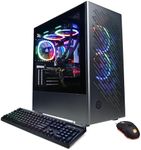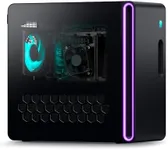Buying Guide for the Best Gaming PCs
Choosing the right gaming PC can be a daunting task, but with the right approach, you can find a machine that perfectly suits your needs. The key is to understand the specifications that matter most for gaming and how they impact your overall experience. By focusing on these key specs, you can make an informed decision and ensure that your gaming PC delivers the performance you need for an enjoyable gaming experience.Processor (CPU)The processor, or CPU, is the brain of your gaming PC. It handles all the instructions from your games and other applications. A powerful CPU ensures smooth gameplay and can handle complex tasks without lag. CPUs are typically divided into entry-level, mid-range, and high-end categories. Entry-level CPUs are suitable for casual gaming and less demanding games. Mid-range CPUs offer a good balance of performance and price, making them ideal for most gamers. High-end CPUs are designed for enthusiasts who want the best performance for the latest and most demanding games. Consider the types of games you play and choose a CPU that matches your needs.
Graphics Card (GPU)The graphics card, or GPU, is crucial for rendering the images and videos in your games. A powerful GPU ensures high frame rates and better visual quality. GPUs are categorized into entry-level, mid-range, and high-end. Entry-level GPUs are suitable for older or less demanding games. Mid-range GPUs can handle most modern games at decent settings. High-end GPUs are for gamers who want to play the latest games at the highest settings with smooth performance. Think about the resolution and graphics settings you prefer and choose a GPU that can deliver the experience you want.
Memory (RAM)RAM, or Random Access Memory, is where your PC stores data that it needs to access quickly. More RAM allows your PC to handle more tasks simultaneously and can improve game performance. For gaming, 8GB of RAM is the minimum, but 16GB is recommended for a smoother experience and future-proofing. If you plan to stream or run other applications while gaming, consider 32GB. Choose the amount of RAM based on your multitasking needs and the requirements of the games you play.
StorageStorage determines how much space you have for your games, applications, and files. There are two main types of storage: Hard Disk Drives (HDDs) and Solid State Drives (SSDs). HDDs offer more storage at a lower cost but are slower. SSDs are faster, which means quicker load times and better overall performance, but they are more expensive. Many gaming PCs use a combination of both, with an SSD for the operating system and frequently played games, and an HDD for additional storage. Consider how many games and files you need to store and choose a storage solution that fits your needs.
Cooling SystemA good cooling system is essential to keep your gaming PC running smoothly and to prevent overheating during long gaming sessions. There are two main types of cooling: air cooling and liquid cooling. Air cooling is more common and generally sufficient for most gaming PCs. Liquid cooling is more efficient and quieter but can be more expensive and complex to maintain. If you plan to overclock your CPU or GPU, or if you live in a hot climate, a more advanced cooling system might be necessary. Choose a cooling system that matches your performance needs and usage habits.
Power Supply Unit (PSU)The power supply unit (PSU) provides power to all the components in your gaming PC. A reliable PSU ensures stable performance and protects your components from power surges. PSUs are rated by wattage, which indicates how much power they can supply. It's important to choose a PSU with enough wattage to support all your components, with some extra headroom for future upgrades. For most gaming PCs, a PSU between 500W and 750W is sufficient. Check the power requirements of your components and choose a PSU that meets or exceeds those needs.
MotherboardThe motherboard is the main circuit board that connects all the components of your gaming PC. It determines the compatibility and expandability of your system. When choosing a motherboard, consider the CPU socket type, the number of RAM slots, and the types of expansion slots available. Ensure that the motherboard supports the CPU, GPU, and RAM you plan to use. Additionally, look for features like built-in Wi-Fi, Bluetooth, and USB ports that match your needs. Choose a motherboard that provides the connectivity and features you require for your gaming setup.
